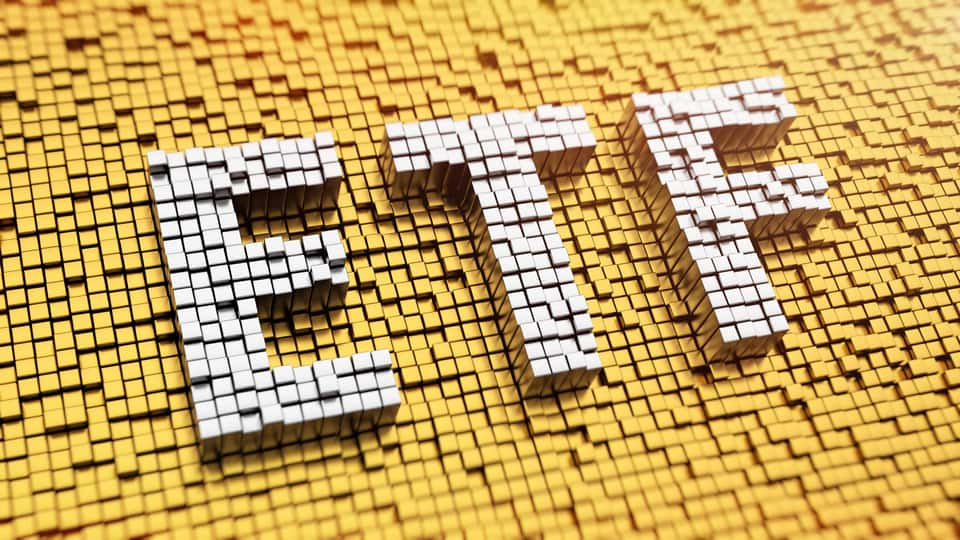In July, the emerging markets investment marked their highest inflow of a staggering $36.50 billion since January. Also, the rapidly growing significance of emerging and developing markets is anticipated to result in more growth and investment opportunities.
Against this backdrop, investors could consider investing in emerging markets ETFs iShares MSCI Emerging Index Fund (EEM - Get Rating), iShares Core MSCI Emerging Markets ETF (IEMG - Get Rating), and Vanguard FTSE Emerging Markets ETF (VWO - Get Rating) for wide exposure.
Despite the recent global monetary tightening, the capital inflows to certain emerging markets and developing economies remained relatively resilient, benefitting from the robust policy frameworks and healthy international reserves projecting their stability. Also, during August, the MSCI EM Index yielded 1.65% where markets like Taiwan and India performed well. The MSCI World Index grew by 2.68%.
Over the following years, the contribution of large emerging markets is expected to continue to expand and power global economic growth. Also, owing to rich natural resource deposits and other factors, many smaller nations will likely grow at a rate twice the global average in the next five years. During the period 2024-2029, Guyana, an emerging market, will be the fastest-growing market, with a 19.8% CAGR.
Guyana will be followed by Mozambique at a 7.9% growth, Rwanda at 7.2%, and Bangladesh at 6.8%. Notably, besides Guyana, all the fastest-growing emerging markets are in Africa or Asia. Also, the expectations of lower interest rates in the US are expected to favor softer monetary policies in EM countries and potentially contribute positively.
Amid the recent downtrends of some developed markets, various emerging markets are hailing high and performing better. This, in turn, has surfaced emerging markets ETFs as an ideal investment to bring diversity to the portfolio and invest in more liquid funds that have high return potential for investors.
Given the industry’s tailwinds, let’s delve into the fundamentals of the three best Emerging Markets Equities ETFs, beginning with number 3.
ETF #3: iShares MSCI Emerging Markets ETF (EEM - Get Rating)
EEM is an ETF fund launched by BlackRock, Inc. and managed by BlackRock Fund Advisors. The ETF seeks to invest in the public equity markets of global emerging regions and stocks of companies operating across diversified sectors and market capitalizations. EEM tracks the performance of the MSCI Emerging Markets Index.
The fund has assets under management (AUM) of $17.24 billion. EEM’s top holdings include Taiwan Semiconductor Manufacturing Co., Ltd. (TSM) with a 9.47% weighting, followed by Tencent Holdings Ltd. (TCEHY) at 4.09%, and Samsung Electronics Co., Ltd. and Alibaba Group Holding Limited (BABA) at 3.08% and 2.10%, respectively.
The ETF has a total of 1197 holdings, with its top 10 assets comprising 25.23% of its AUM. EEM’s expense ratio is 0.70%, higher than the category average of 0.50%. Also, it has a beta of 0.74.
EEM pays an annual dividend of $1.04, translating to a yield of 2.42% at the current share price. Further, the fund’s dividend payouts have increased at a CAGR of 11% over the past three years. EEM has paid dividends for 17 consecutive years.
EEM has surged 3.9% over the past six months and 9.8% over the past year to close the last trading session at $42.83. The fund has a NAV of $42.84 as of September 13, 2024.
FNDE’s POWR Ratings reflect solid prospects. The fund has an overall rating of B, translating to a Buy in our proprietary rating system. The POWR Ratings are calculated by considering 118 different factors, with each factor weighted to an optimal degree.
EEM has an A grade for Buy & Hold and a B grade for Trade. Within the A-rated Emerging Markets Equities ETFs group, it is ranked #44 of the 101 ETFs.
To access all EEM’s POWR Ratings, click here.
ETF #2: iShares Core MSCI Emerging Markets ETF (IEMG - Get Rating)
IEMG was launched by BlackRock. It offers comprehensive exposure to emerging markets by including smaller firms in its portfolio. The funds seek to track the performance of the MSCI Emerging Markets Investable Market Index.
With $78.08 billion in AUM, IEMG’s top holdings are TSM with a 7.80% weighting, TCEHY at 3.43%, and Samsung Electronics Co., Ltd. and BABA at 2.64% and 1.77%, respectively. The ETF has a total of 2819 holdings, with its top 10 assets comprising 21.61% of its AUM.
The fund has an expense ratio of 0.09%, lower than the category average of 0.50%. IEMG fund inflows came in at $765.90 million over the past year.
IEMG pays an annual dividend of $1.49, which translates to a 2.76% yield at the current price level. Moreover, the fund’s dividend payouts have increased at a CAGR of 7.6% over the past three years. Also, it has paid dividends for 11 consecutive years.
IEMG has gained 4.1% over the past six months and 10% over the past year to close the last trading session at $53.86. It has a beta of 0.75. The fund’s NAV was $53.93 as of September 13, 2024.
IEMG’s sound fundamentals are reflected in its POWR Ratings. The fund has an overall rating of B, equating to a Buy in our proprietary rating system.
The fund has an A grade for Buy & Hold and a B for Trade. Of the 101 ETFs in the A-rated Emerging Markets Equities ETFs group, IEMG is ranked #43.
Click here to see all the IEMG ratings.
ETF #1: Vanguard FTSE Emerging Markets ETF (VWO - Get Rating)
VWO is launched and managed by The Vanguard Group, Inc. The fund offers exposure to emerging markets worldwide like China, Brazil, Taiwan, and South Africa, and holds stocks of any market capitalization. VWO seeks to track the performance of the FTSE Custom Emerging Markets All Cap China A Inclusion Net Tax (US RIC) Index.
The fund has assets under management (AUM) of $77.43 billion. VWO’s top holdings include TSM, with a weighting of 8.29%, followed by TCEHY at 3.42%, and U.S. Dollar and BABA at 2.95% and 1.97%, respectively. The ETF has a total of 4830 holdings, with its top 10 assets comprising 23.08% of its AUM.
The fund has an expense ratio of 0.08%, compared to the category average of 0.50%. The fund’s inflow was $375.42 month for the past month.
VWO pays an annual dividend of $1.40, which translates to a yield of 3.15% at the current share price. The fund’s dividend payouts have increased at a CAGR of 9.2% over the past three years. VWO has paid its dividends for 16 consecutive years.
VWO has gained 5.9% over the past six months and 9.8% over the past year to close the last trading session at $44.46. And it has a beta of 0.69. The fund’s NAV was $44.47 as of September 13, 2024.
VWO’s POWR Ratings reflect its strong outlook. The ETF has an overall rating of A, which translates to a Strong Buy in our proprietary rating system.
VWO has an A grade for Buy & Hold and Trade. It also has a B grade for Peer. The fund has topped the list of 101 ETFs in the same group.
To access all the POWR Ratings for VWO, click here.
What To Do Next?
Get your hands on this special report with 3 low priced companies with tremendous upside potential even in today’s volatile markets:
3 Stocks to DOUBLE This Year >
Want More Great Investing Ideas?
VWO shares were trading at $44.63 per share on Monday afternoon, up $0.17 (+0.38%). Year-to-date, VWO has gained 9.11%, versus a 19.17% rise in the benchmark S&P 500 index during the same period.
About the Author: Rjkumari Saxena

Rajkumari started her career as a writer but gradually shifted her focus to financial journalism, leveraging her educational background in Commerce. Fascinated by the interplay of business and economic shifts in equities, she aspires to evolve as an analyst. With a knack for simplifying complex financial concepts, her mission is to empower investors with insights that lead to profitable decisions. More...
More Resources for the Stocks in this Article
| Ticker | POWR Rating | Industry Rank | Rank in Industry |
| VWO | Get Rating | Get Rating | Get Rating |
| IEMG | Get Rating | Get Rating | Get Rating |
| EEM | Get Rating | Get Rating | Get Rating |






